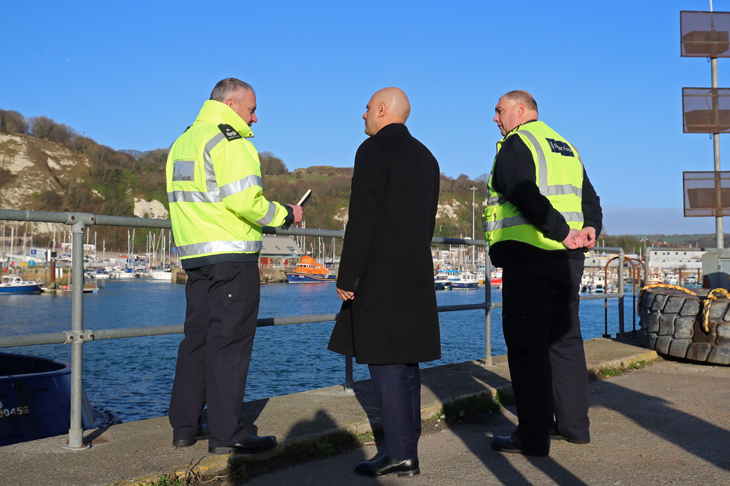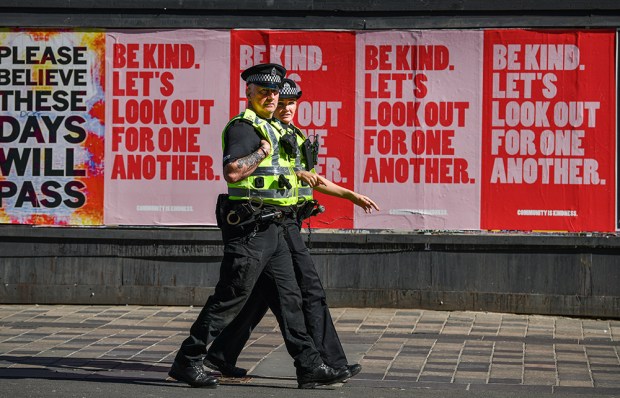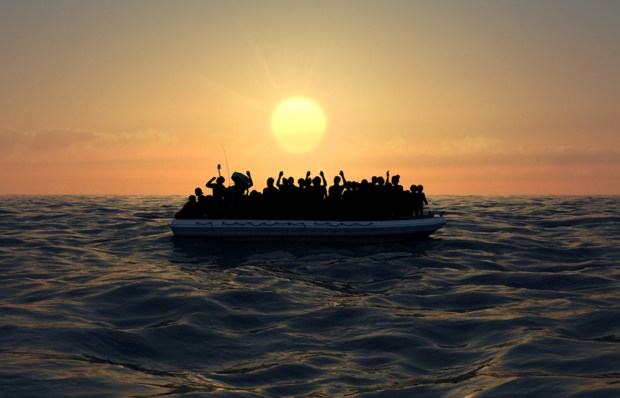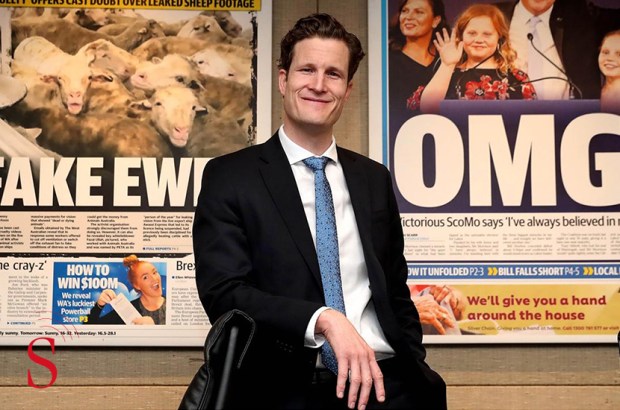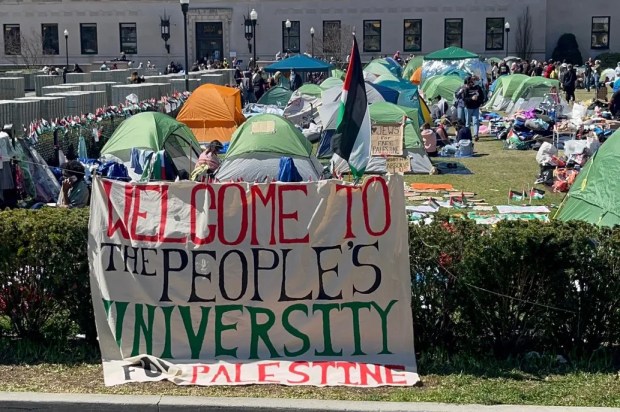It has been a messy start to the new year for Sajid Javid. For months now, migrants using small boats have been landing in Kent, usually no more than a dozen people at a time. For a country that receives up to 2,500 asylum applications a month, this falls short of a national crisis. It was quite absurd for Tory MPs to talk about deploying the Royal Navy to fend off a few dinghies, and absurd for the Home Secretary to rush back from his holiday to handle the non-crisis and declare it a ‘major incident’. It is a minor incident, but may turn into a major one if the government panics.
Migration patterns change, as do the methods. Over the past few years we have seen the rise of a global people-trafficking industry, a new evil that is responsible for the deaths of thousands of migrants. Most of those arriving by boat are not fleeing war but are seeking a better life and — crucially — have enough money to pay for the journey. As Sohrab Ahmari explains in this week’s issue, some traffickers now offer a full service across Europe. The increase in wealthier Iranian migrants wanting to cross the Channel has led to the start of a new kind of trafficking.
Britain certainly has an obligation to help refugees, but it will not do so by playing the traffickers’ game. For years, police have found migrants stowed away in lorries or shipping containers. Many perish during the journey. The determination is awe-inspiring: these migrants are risking death in order to start at the very bottom in Britain. The human instinct is to help, especially when families with young children are involved.
Angela Merkel’s offer in 2015 to welcome all Syrian refugees to Germany was an understandable human reaction but the results were calamitous. Mrs Merkel unwittingly presented the traffickers with a new business model: to get people to Germany by hook or by crook, with the promise of citizenship. Some 3,500 died in the Mediterranean that year, with 5,000 perishing the next year and another 1,500 last year.
The Australians found that turning back the boats was the only way to end deaths in their waters. And they accompanied it with a clear message: no matter how strong the claim for asylum, anyone who enters Australia illegally by boat would be turned away. So there was no point in paying traffickers for the journey.
The old rules for refugees, under the 1951 UN Refugee Convention, are no longer fit for purpose. They were written to stop a repeat of the pre-war horrors when several countries turned away Jewish refugees, but there are now far better ways of helping to save lives. Britain has led the way in this, spending money on refugee camps in Jordan to help refugee families — the vast majority of whom seek temporary shelter rather than permanent resettlement, in the hope of eventually returning home. It comes down to a humanitarian calculation: Britain can help 30 refugees in other parts of the world for the price of accommodating one refugee here. We ought to take our fair share of refugees, but this can only ever be a tiny gesture towards solving a global problem. Using the aid budget to help people overseas, as Norway does, saves far more lives.
We also need to understand what is driving the great migration. War is one element, but a minority of those applying for asylum in Europe are fleeing conflict zones. Most come from places like Pakistan and Nigeria, seeking a better life. The lengths that they go to ought not to puzzle us. A few generations ago, people from Britain were risking death on crowded boats crossing the Atlantic in search of better circumstances. Between 1847 and 1851, the death rate was 17 Britons for every 100 who attempted the crossing — a risk that was seen to be worth taking. Today, in the Mediterranean, the death rate is closer to five for every 100. Our stories are not so different.
The people trafficking industry is based on the premise that migrants are willing to risk death. And that they will do what they can to find money — as much as $15,000 — to pay for the crossing. As the poorer world becomes more developed, there will be no shortage of people willing to make the journey and able to pay for it too. Some 17 million emigrated from the UK between 1846 and 1924. It was legal, of course, but the 8,000 Iranians granted asylum in Britain over the past seven years have also used legal routes. We can expect those seeking a life in the UK to choose whichever methods are most likely to lead to success.
This new people trafficking industry must be thwarted. Britain has an obligation to accommodate some of those fleeing persecution, but we ought to take people directly from camps outside conflict zones, rather than accept those who pay traffickers. The surest way of stopping boats from crossing is not to ask the Royal Navy to play cat-and-mouse in the Channel but by making it clear that this method of migration will not work. That requires decisive political leadership, which is a tall order right now. The calamity that has unfolded in the Mediterranean over the past few years should at least provide a clear example of what not to do.
Got something to add? Join the discussion and comment below.
You might disagree with half of it, but you’ll enjoy reading all of it. Try your first month for free, then just $2 a week for the remainder of your first year.

